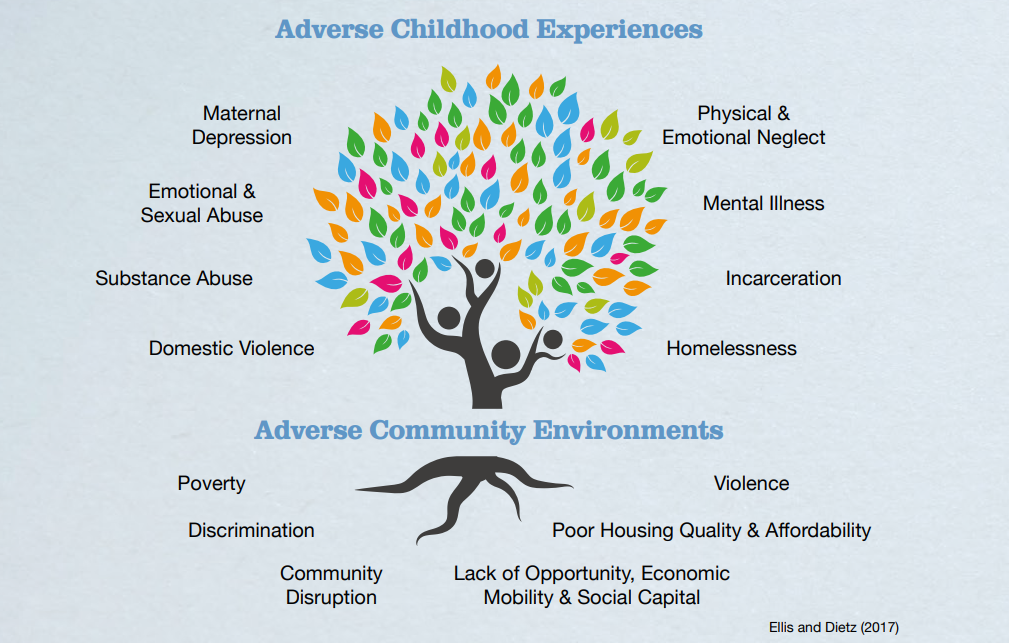Understanding The Issues That Underpin Neglect
Most parents/carers do not set out to purposefully neglect children which very much fits with the point that neglect most often occurs as a result of omision rather than co-mission. For this reason we need to understand and respond to the contributing factors that underpin neglect and get in the way of parents/carers prioritising and meeting the needs of their children.
The issues of adult domestic abuse, mental health and substance use/misuse regularly feature in situations of neglect. That is not say for example that all adults that experience these will neglect their children. However, they do appear as consistent themes for those children experiencing neglect.
The Child Safeguarding Practice Review Panel has recently initiated a piece of work around neglect which will consider the characteristics of families of children subject to review and will focus on what helps or hinders multi-agency practice and interventions in protecting the child. When published we will update this guidance with the report but in the meantime we can learn from the Panel’s annual report 2022/23 which identifies the parental needs/risk factors more widely across reviews.
of reviews featured
domestic abuse
of reviews featured at
least 1 parent with a
mental health need
of reviews featured at
least 1 parent misusing
alcohol/
substances
of reviews featuring
adult mental health also
featured adult misuse
of alcohol/
substances
of reviews featured
single parents
of reviews featured
young parents (under 25)

Parents & Carers With Learning Needs
The report also highlights that 18% of reviews involved at least one parent/relevant adult with a reported disability whether it be physical, learning or developmental or mental health related.
We therefore need to ensure that our work with adults in these circumstances is provided in a way that makes sense for them and takes account of how best they receive and process information.
Plymouth Highbury Trust provides a range of resources you can use when working with families to support their invovlement in the work and that helps them understand any worries professionals have about their children.
Parent & Carer Adverse Childhood Experiences
We also know from previous years analysis of serious cases; Final analysis of serious case reviews 2017-19 (Dickens et al 2022), that 34% of parents/carers themselves experienced adverse childhood experiences.
Research in Practice have produced a range of briefings on the full report tailored to colleagues from education, health, police, social work and early help. You can find them HERE.


Let’s stop and reflect and think about two key things we can do to support change for children and families in the context of why neglect occurs
Consider the Underpinning Issues in Our Assessments and Support Plans
If we consider the issues that underpin the neglect then we improve the chances of sustained change for a child. For example, in a situation of physical neglect where parents are not providing a safe physical home environment there will be a need to work with carers to help them understand the importance of how the home conditions are impacting on the children, what needs to change and what help they need to make the changes. However, the parent may be struggling with mental health, hoarding or social isolation for example and these factors have contributed to the physical neglect. If we don’t also consider these needs in our assessments and support planning then any immediate improvements in the home environment are likely to be shortlived. In other words, the house may get cleaned up but may soon deteriate to worrying levels if we don’t address the issues that underpin the neglect.
Maintain a Child Focus
When parents have a range of needs that underpin the neglect, and some of these can be very complex and based on their own childhood trauma, it is important that we maintain a focus on the child. We absolutely need to address the adult needs undeprinning the neglect but our empathy for, and relationships with carers, can be such that we lose sight of what’s happening for the child. We can start compensating for the adults behaviour and while this may be unknowingly and unwittingly it can lead to drift and delay for the child. So ask yourself…
1. Have I given enough focus to what’s happening for the child in my support of the family?
2. Do I spend most of my conversations with parents talking about what’s going on for them rather than the needs of the child?
3. Are things improving for the child? How do I know – how are they showing or telling me?
